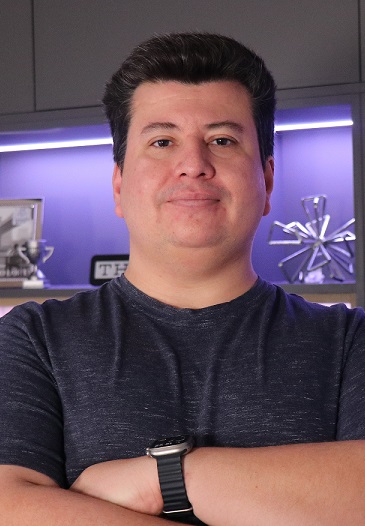On the lighter side of things, we ask Wesley Willians, CEO, Full Cycle, what makes him tick.

What would you describe as your most memorable achievement?
My most memorable achievement is knowing that I contribute daily to training developers and companies so they can feel prepared to create great applications in complex ecosystems. We understand that these large systems change our world, and knowing I am part of it is really rewarding.
What first made you think of a career in technology?
I have been in this sector for over 20 years now. My first contact with programming was to develop a program that calculated the average grades of students to whom my mother taught Portuguese. During this period, I took a course at a computer school where I learned my first programming language. Then the web appeared, and my focus turned entirely to websites and systems that run in the cloud.
What style of management philosophy do you employ in your current position?
I believe that any management is based on leadership and processes. Leadership needs to happen by example. If I want my tutors to be able to give a great class, I need to be able to teach just as well. If I want my salespeople to accomplish a high performance, I also need to be a high-performance professional.
Therefore, managing a company is about showing everyone involved that you have “skin in the game”. Regarding processes, no one’s work must not be chaotic. When there are well-defined processes, you look for students to whom my mother taught Portuguese flaws that need to be improved instead of blaming people.
What do you think is the current hot technology conversation topic?
Undoubtedly, Artificial Intelligence (AI) and its accelerated growth are shaping the future. What people at OpenAI have done will revolutionize the world in some ways we cannot imagine. AI will change the way we learn, communicate, question and act. However, all of this is only possible if IT professionals can design, develop, test and deploy large systems.
I always say that there is no simple solution to complex problems. If something is too simple, there is probably something wrong.
How do you deal with stress and relax outside of the office?
My life completely changed in 2008 after my first burnout. I sought help from professionals, and a few years later, I was diagnosed with bipolar disorder. I have to say that this affected my productivity a lot during that period, but today I see how much I have been able to help people who have gone through similar situations. It includes both family members and employees of Full Cycle.
Currently, to relax, I like to build LEGO sets. Also, I fell in love with aquariums and reptiles. I have an aquatic turtle in a 1.80 meters long aquarium and an Australian Bearded Dragon. My best moments are with my family and children. I have four children, three girls and one boy.
If you could go back and change one career decision, what would it be?
I would have sought a better repertoire in complex problems of large organizations. When you can work on different projects with different people, your repertoire increases significantly.
I would have also specialized much more in sales. Sales are the heart of any company. Having a sales culture is essential.
What do you currently identify as the top investment areas in your industry?
For sure, it is AI. It will completely change how people learn and will directly affect the education market. Those who work in this sector will have two options: Fight against the advancement of AI or find a way to make it help drive the business. We will undoubtedly have to reinvent ourselves soon.
What are the specific challenges of the region when implementing new technologies in Latin America?
I believe it is the lack of qualified professionals, legal insecurity and high-interest rates with a very high dollar exchange rate. We have a catastrophic result if we associate such a large deficit of professionals with the macroeconomic scenario. The rise in interest rates to control inflation caused many businesses to disappear overnight.
Fintech initiatives, for example, were devastated by the fact that the cost of money was expensive. With high-interest rates, for many investors, it is better to buy government bonds that are paying very well than to carry out high-risk operations.
What changes have you seen in your job role in the last year, and how do you think they will develop in the next 12 months?
I believe any C-level executive needs to understand that a company without a strong sales culture can suffer much more in difficult times.
Absolutely all areas need to understand that sales are the heart of the business. Without sales, there is no product, support or HR. All sectors of the company need to participate in the process of facilitating acquisition or expansion to new customers.
What advice would you give someone aspiring to a C-level position in your industry?
Be a generalist. Understand as many areas as possible. Talk to people, including your competitors. Believe me: competitors will guide you in difficult times. Be humble and willing to learn from those on the front lines. Leave your ego aside and learn to dismiss what is not working as quickly as possible. In the business world, there is no attachment. Only what works and what does not work.
Click below to share this article

